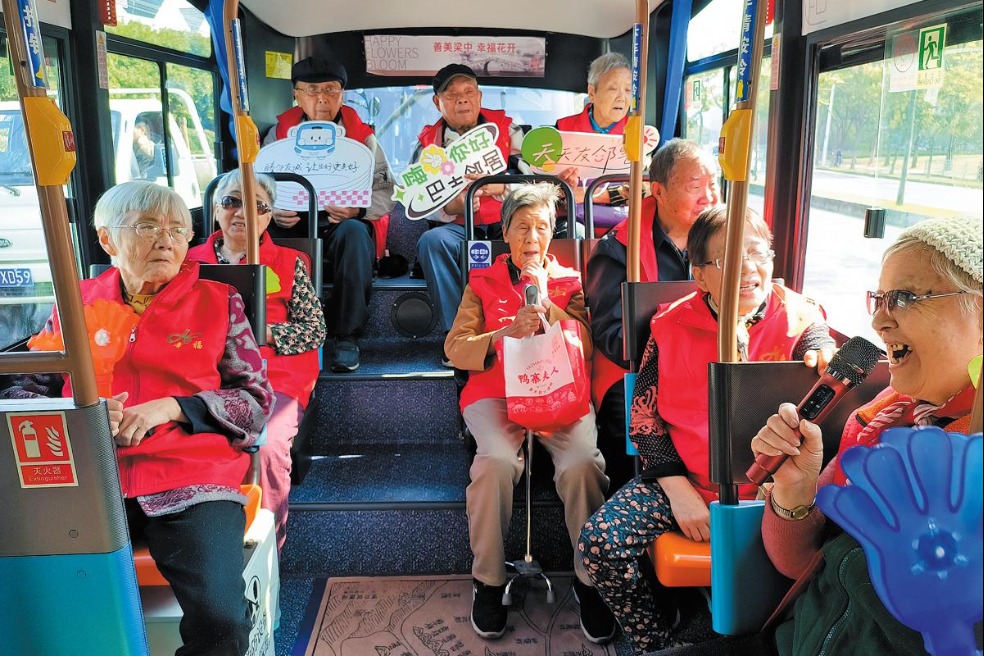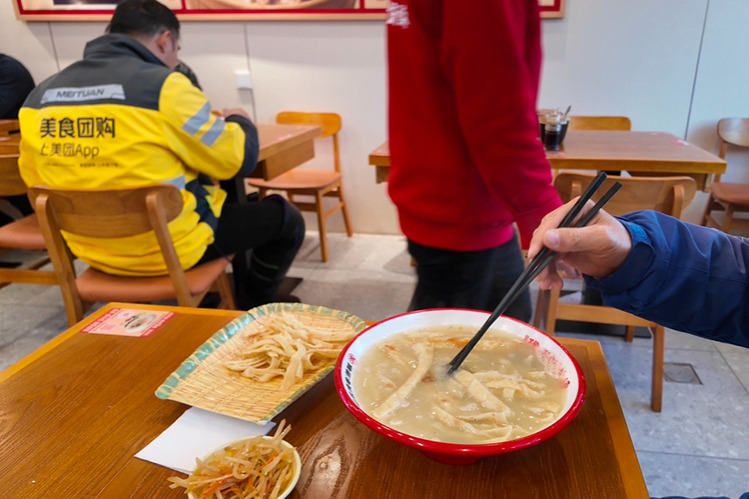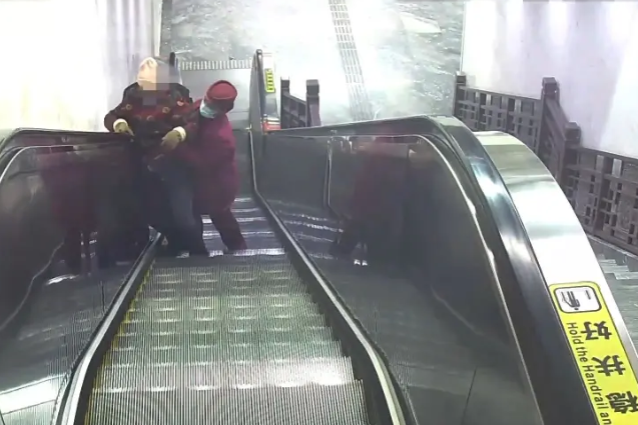Dedicated shopkeeper goes extra mile


On April 1, convenience store manager Li Na's marathon 23-day stint in her store came to an end after she was ordered to return to her home in Shanghai's Puxi area because it was being placed in closed-loop management.
Before that, the dedicated Anhui province native had lived in her store, with no shower or bed, 24/7 for almost four weeks in order to serve communities in the local area that had already been placed in lockdown.
And she didn't go quietly. If it were up to her she would have remained in the store and she had to be asked to return home several times before she finally relented.
Li's mission while on duty was to guarantee the daily supply of much-needed food and daily-use products to people unable to leave their homes at this difficult time.
"My neighborhood committee urged me to go home three or four times, but I just couldn't leave. My customers needed enough supplies to last through the lockdown. And as the outbreak worsened, more and more people began panic buying," said the 32-year-old.
Li moved to Shanghai from her hometown in Huainan, Anhui province, at the age of 13. She now lives with her husband in a community on Hongmei South Road.
"I have worked in this store for more than two years. I know the residents in the surrounding communities. They are like friends. While I was staying here they kept sending me messages and asking if the convenience store would close and hoped it would remain open," Li said.
Li's store is located in a school area with many young students living nearby. As a mother of two, whose children live with their grandparents closer to their school, she was worried about these students and how not being able to leave their homes might affect them.
"I understand the concerns of their parents," she said. "These students need to eat healthily and have balanced nutrition while growing up, I need to think about them."
This consideration of others has underscored Li's approach to the communities she serves.
"I told my husband I would stay in the store. He understood why it was so important and stood by my decision," Li said.
In the beginning, three people were working and living in the store, but after a few days Li was the only one left. Despite this, in that short time online orders had tripled.
"I have a WeChat group for regular customers. They usually tell me their needs in advance to improve efficiency. Recently, the number of customers in the group has surged from 30 to over 300, most of whom are at home and need delivery," she said.
With orders piling up and a shortage of delivery drivers, Li even had to head out quickly and do some of the deliveries herself.
At first, she calculated her inventory based purely on her online orders, but quickly found out this left her with empty shelves and didn't actually serve people who were unable to order online or with a smartphone, and those such as passing police officers or bus drivers.
The most unforgettable experience was when a police officer on a long patrol in the area came in to buy breakfast, but the shelves were empty. "He was very disappointed and said he'd been looking around for an open store for a long time," Li said. "Afterward, I decided to order more stock and save some inventory for those who randomly stopped by."
Over time, more and more customers realized that Li was actually living in the store.
"They asked me every day about my situation," she said, adding that some offered to bring her blankets, shoes and heating pads.
Living in the store was not as harsh as one might imagine, according to Li. "The store has snack boxes, rice balls and sandwiches, which I can eat and get reimbursed for by the company," Li said.
Without a proper bed, she made do with a stack of flattened cardboard boxes.
But the major difficulty was having no shower.
"A woman who lives above the store invited me to take a shower at her house, saying there was no inconvenience as she lives alone, but I couldn't take her up on her offer," Li said, explaining the potential risk of exposure to COVID-19 as she interacted with many customers in the store each day.
But the woman insisted, so one day after a negative antigen test, Li accepted her kindness and had her first shower in nearly 20 days.
On March 27, the city announced a two-phase lockdown plan and Puxi, the area west of Huangpu River, would be locked down starting from April 1.
Li had to close the store.
Worried that people might need more supplies before the lockdown, she stayed another night even after the local government sealed the door of the convenience store. When she woke up, everyone in the WeChat group was asking her to go home.
"They were worried about me. They sent me photos of supply packages provided by the government to prove that they had enough," Li said.
"I was literally being 'begged' to go home by my customers," she added.
On March 31, she arrived home, free to take a shower at any time. Even though the store was closed, Li still uses the WeChat group with her customers to help them secure supplies.
"I just wanted to do something for them as long as I could," she said.






























